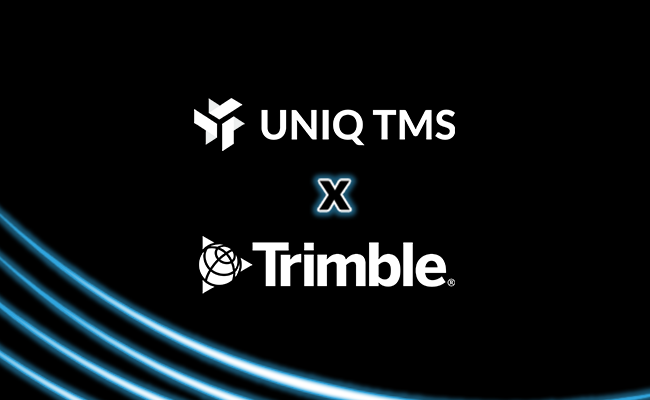How TMS Integrations with Accounting Software Streamline Financial Operations

Organizations are constantly seeking ways to optimize their financial operations and streamline their processes. One such solution that has gained significant traction is the integration of Transportation Management Systems (TMS) with accounting software. This powerful combination offers numerous benefits and can revolutionize the way businesses manage their finances. In this article, we will delve into the intricacies of TMS integrations with accounting software and explore how this fusion can drive enhanced financial efficiency, accuracy, and reporting.
Understanding TMS and Its Role in Financial Operations
Before we explore the impact of TMS and accounting software integration, it is crucial to understand the core functions and significance of TMS in modern business.
Transportation Management Systems (TMS) have become indispensable tools for businesses looking to streamline their transportation processes and enhance overall efficiency. These software solutions encompass a wide range of functionalities, including planning, execution, optimization, and analysis of transportation activities. By leveraging TMS, organizations can effectively manage tasks such as load planning, carrier selection, freight audit, and payment processing, leading to cost reductions and improved operational performance.
Defining TMS and Its Core Functions
A Transportation Management System (TMS) is a software solution that helps businesses effectively manage their transportation processes, from planning and execution to optimization and analysis. TMS streamlines various activities such as load planning, carrier selection, freight audit, and payment processing, thereby reducing costs and enhancing operational efficiency.
Moreover, TMS provides companies with valuable insights into their transportation operations, allowing them to make data-driven decisions and optimize their supply chain networks. By centralizing transportation data and automating manual processes, TMS enables organizations to respond swiftly to market changes and customer demands, ultimately gaining a competitive edge in the industry.
The Importance of TMS in Modern Business
In today’s interconnected world, efficient transportation management plays a pivotal role in a company’s overall success. TMS empowers organizations to seamlessly coordinate their logistics operations, ensuring on-time delivery, minimizing transit times, and optimizing resource utilization. By doing so, TMS helps companies enhance customer satisfaction while reducing overhead costs.
Furthermore, the integration of TMS with other business systems, such as Enterprise Resource Planning (ERP) and Customer Relationship Management (CRM) software, enhances visibility and collaboration across different departments. This integration allows for real-time data sharing and communication, enabling better decision-making and operational agility. As businesses continue to embrace digital transformation, the role of TMS in driving efficiency and profitability in financial operations becomes increasingly pronounced.
The Intersection of TMS and Accounting Software
In recent years, the integration of Transportation Management Systems (TMS) with accounting software has emerged as a game-changer for businesses looking to optimize their financial operations. The integration of these two business-critical systems brings numerous advantages, offering a holistic approach to financial management.
Transportation Management Systems (TMS) play a crucial role in managing the logistical aspects of a company’s supply chain, including planning, execution, and optimization of the transportation of goods. By integrating TMS with accounting software, businesses can achieve a seamless flow of information between their transportation and financial departments, leading to improved efficiency and cost savings.
The Basics of Accounting Software
Accounting software is designed to automate and streamline financial management processes such as accounts receivables and payables, general ledger maintenance, and financial reporting. Organizations rely on accounting software to accurately track their financial transactions, monitor cash flows, and generate comprehensive financial statements in compliance with accounting standards.
Furthermore, modern accounting software often comes equipped with advanced features such as real-time reporting, customizable dashboards, and integration capabilities with other business systems. This enables companies to gain deeper insights into their financial data, make informed decisions, and adapt quickly to changing market conditions.
How TMS Integrates with Accounting Software
When TMS is seamlessly integrated with accounting software, the two systems exchange critical data, enabling real-time visibility into financial transactions related to transportation management. This integration ensures that all transportation-related costs, such as freight charges, fuel expenses, and carrier payments, are accurately recorded and reflected in the financial system. By automating these processes, businesses can eliminate manual data entry errors and improve their financial accuracy.
Moreover, the integration of TMS with accounting software allows for enhanced cost allocation and analysis. Companies can track transportation expenses more effectively, allocate costs to specific projects or departments, and conduct detailed cost-benefit analyses to optimize their transportation spending. This level of granularity in financial data empowers businesses to make strategic decisions that drive profitability and operational efficiency.
The Benefits of TMS and Accounting Software Integration
The integration of Transportation Management System (TMS) with accounting software offers a myriad of benefits that can significantly enhance financial operations and drive business growth. Beyond the obvious advantages of streamlining processes, there are additional layers of benefits that come with this integration.
One key benefit is the improved visibility and transparency that comes with integrating TMS and accounting software. By having these systems connected, businesses can gain a holistic view of their financial and operational data. This integrated approach allows for better tracking of expenses related to transportation, such as fuel costs, maintenance, and driver wages, providing a more accurate picture of the true cost of operations.
Improved Financial Accuracy and Efficiency
Manual data entry and reconciliations are not only time-consuming but also prone to errors. By integrating TMS with accounting software, businesses can automate the transfer of data, eliminating the need for manual intervention. This streamlines financial processes, reduces the risk of errors, and ensures accurate financial records, ultimately increasing operational efficiency.
Moreover, the integration of TMS and accounting software can lead to enhanced cost control measures. By having real-time access to financial data, businesses can quickly identify cost-saving opportunities and make adjustments as needed. This proactive approach to cost management can result in significant savings over time, contributing to the overall financial health of the organization.
Enhanced Financial Reporting and Analysis
Effective financial reporting and analysis are essential for informed decision-making. With the integration of TMS and accounting software, businesses gain access to comprehensive, real-time data. This enables them to generate accurate financial reports, analyze key performance indicators (KPIs), and identify trends or patterns that can drive better decision-making and strategic planning.
In addition, the integration of TMS and accounting software can facilitate better compliance with regulatory requirements. By centralizing data and automating reporting processes, businesses can ensure that they are meeting all necessary financial regulations and standards. This not only helps avoid costly penalties but also builds trust with stakeholders and enhances the company’s reputation in the industry.
Key Features to Look for in TMS and Accounting Software Integration
Not all TMS and accounting software integrations are created equal. To maximize the benefits of this integration, it is crucial to select solutions that offer key features to optimize financial operations.
When considering TMS and accounting software integration, it’s important to also prioritize scalability. A scalable integration can grow with your business, accommodating increasing data volumes and expanding financial needs. Look for solutions that can adapt to your company’s growth trajectory and evolving requirements.
Real-Time Data Synchronization
An effective integration eliminates data delays and ensures real-time synchronization between the TMS and the accounting software. This enables businesses to have up-to-the-minute visibility into financial transactions and make timely decisions based on accurate information.
Furthermore, real-time data synchronization enhances collaboration across departments by providing a unified view of financial data. This transparency fosters better communication and alignment between teams, leading to improved decision-making and operational efficiency.
User-Friendly Interface and Navigation
A user-friendly interface and intuitive navigation are essential for seamless operation and adoption of integrated systems. When selecting TMS and accounting software integration, ensure that the solution offers a user-friendly interface, allowing users with varying technical proficiency to effortlessly navigate between the systems.
In addition to user-friendly features, customizable dashboards and reporting tools can enhance the user experience and provide valuable insights. Look for integrations that offer customizable options to tailor the interface to your specific business needs and reporting requirements. This flexibility empowers users to access relevant information quickly and efficiently, improving overall productivity and decision-making processes.
Overcoming Challenges in TMS and Accounting Software Integration
As with any technology integration, there are challenges that organizations may face when integrating TMS with accounting software. It is crucial to address these challenges proactively to ensure a smooth integration process.
Dealing with Data Security Concerns
Integrating TMS with accounting software involves the exchange of sensitive financial data. Businesses must prioritize data security by implementing robust encryption protocols, user access controls, and regular audits. This helps mitigate the risk of unauthorized access or data breaches.
Ensuring Software Compatibility and Integration
One of the most critical challenges in TMS and accounting software integration is ensuring compatibility between the two systems. Prioritize selecting solutions that offer seamless integration capabilities, allowing for easy data transfer and effective collaboration between the TMS and accounting software.
In conclusion, the integration of TMS with accounting software offers businesses a powerful toolset to streamline financial operations. By automating transportation-related financial processes, TMS integration enhances financial accuracy, improves operational efficiency, and enables organizations to make data-driven decisions. When selecting TMS and accounting software integration, it is essential to opt for solutions that offer real-time data synchronization, user-friendly interfaces, and robust data security measures. With careful planning and execution, businesses can harness the full potential of TMS and accounting software integration, ultimately streamlining financial operations and driving business success.

